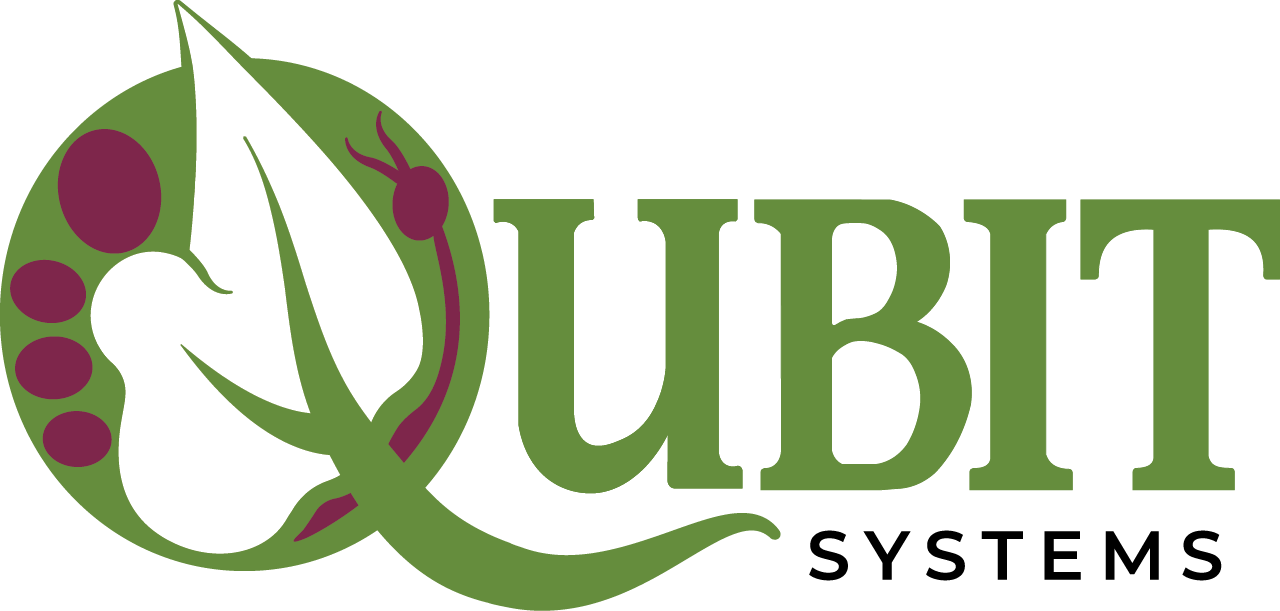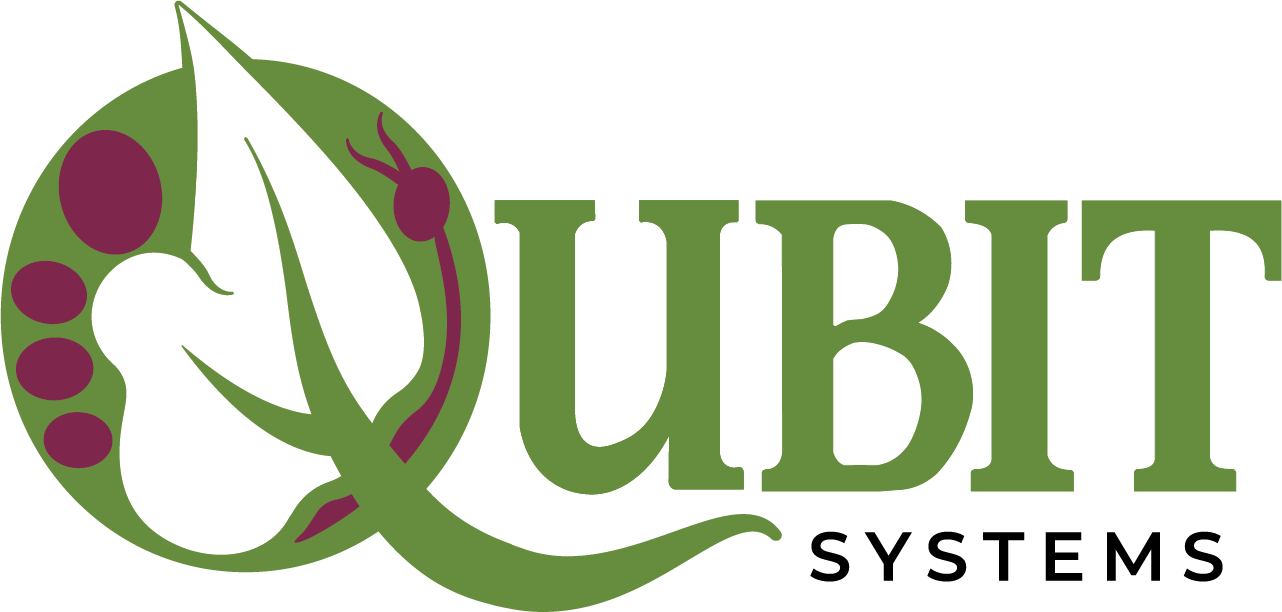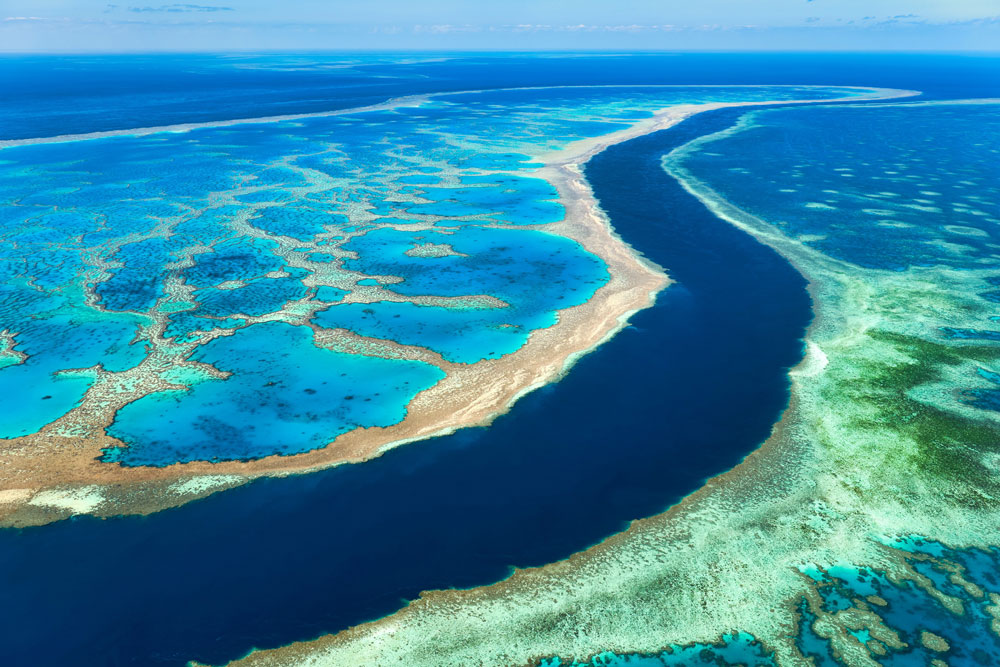
Approximately 71% of the Earth’s surface is covered by water, and about 15% of the world’s species live in the oceans. Today, June 8th, is World Ocean Day, a concept originally proposed in 1992 by Canada’s International Centre for Ocean Development and the Ocean Institute of Canada at the Earth Summit – UN Conference on Environment and Development in Rio de Janeiro, Brazil. The theme for 2023 is Planet Ocean: Tides are Changing, which aims to raise awareness of the importance of the ocean and the need to protect it. Among other investigations, scientists worldwide are endeavouring to unravel the complexities of the coral reef environment and how this may be affected by various aspects of climate change. In doing so they are using CISME – a diver deployed system developed at the University of North Carolina Wilmington in association with Qubit Systems for measuring photosynthesis, respiration and (de)calcification in corals – as well as using other aquatic biology instrumentation provided by Qubit Systems.
CISME Coral Metabolisms System
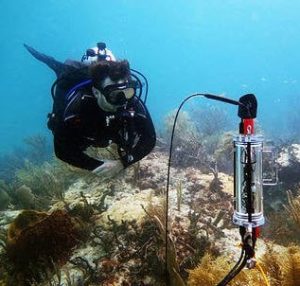
The CISME system measures oxygen fluxes and changes in pH during nondestructive in situ incubations of corals in which water flow and light levels in the sample chamber are controlled by the user. Respiration rate and photosynthesis rate are derived from optical measurements of DO2 and pH. In addition, a sample loop is used to collect a water sample that can be titrated for total alkalinity (TA) from which calcification rate is calculated. The sample loop can also be used to conduct experiments in which the user introduces substances that might affect coral metabolism (such as acidified seawater for ocean acidification studies). Learn MORE
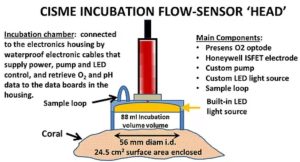
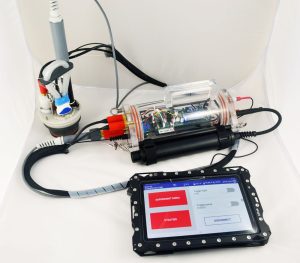
One of the consequences of climate change is an epidemic of coral diseases, such as stony coral tissue loss disease, which is decimating reefs in Florida and the Caribbean. Efforts to halt such diseases include treatments with probiotics and antibiotics, as described in a PBS interview with Dr. Karen Nealy at Nova South Eastern University. CISME is being used in the studies. To view the PBS interview click HERE. For a National Geographic article on stony coral tissue loss disease click HERE.
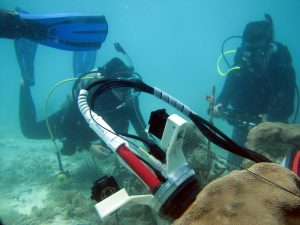
New CISME Developments
We are excited to be working in collaboration with researchers at KAUST in Saudi Arabia to implement new CIMSE features. These include a “nubbin chamber” to accommodate samples of branched corals either at the reef or in laboratory coral nurseries. Also, our chambers can be made available with a choice of LED wavelengths, as well as with a feature to allow simultaneous chlorophyll fluorescence measurements using a submersible fibre optic PAM system.
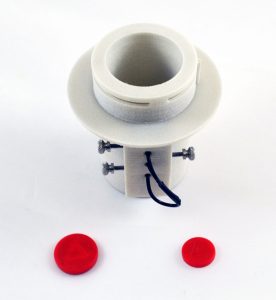
CISME at ASLO 2023 Mallorca and SEB Edinburgh
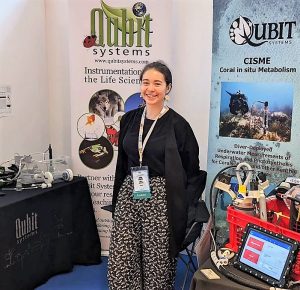
We are proud to present CISME at the current ASLO conference in Mallorca, Spain between June 4 – 9. The theme of the conference is Resilience and Recovery in Aquatic Systems, with CISME a highly appropriate tool for such studies. If you are fortunate enough to be attending the conference, please stop by the Qubit booth where Qubit Head of R&D, Billie Kearns, will be pleased to take you through the specifications of CISME and other Qubit devices for aquatic biology. For more on the ASLO 2023 click HERE.
CISME will also be on display at the Society for Experimental Biology Centenary Conference in Edinburgh, Scotland, between July 4 – 7, together with other Qubit devices for research and teaching in the biological sciences. Qubit CEO, Dr. Stephen Hunt, will be pleased to welcome you at the Qubit booth. For more on the SEB conference, click HERE
Sample CISME Publications
Walter Dellisanti et al. (2023) Seasonal drivers of productivity and calcification in the coral Platygyra carnosa in a subtropical reef. Front. Mar. Sci. Vol 10 https://doi.org/10.3389/fmars.2023.994591
Romano de Orte M. et al. (2021) Unexpected role of communities colonizing dead coral substrate in the calcification of coral reefs. Limnology and Oceanography March 17, 2021 https://doi.org/10.1002/lno.11722
Dellisanti et al. (2020). A Diver-Portable Respirometry System for in-situ Short-Term Measurements of Coral Metabolic Health and Rates of Calcification. Front. Mar. Sci., 12 November 2020 https://doi.org/10.3389/fmars.2020.571451
Other Qubit Products for Aquatic Biology
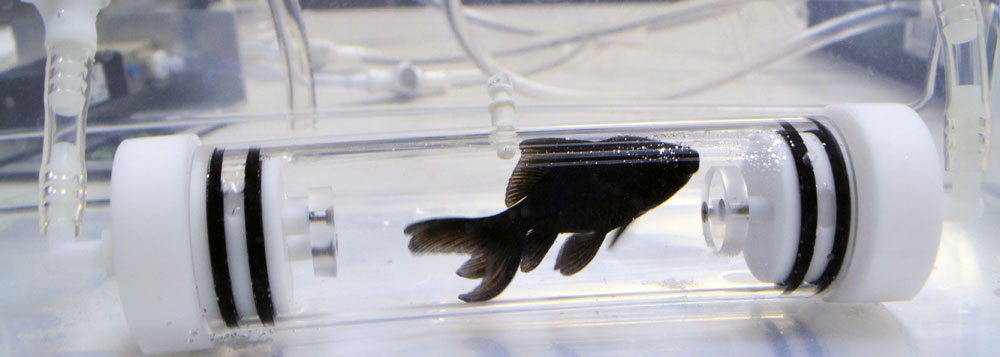
Q-Box AQUA Aquatic Respirometry Package
Metabolic O2 consumption is measured by intermittent flow respirometry in which measurements are made sequentially without removing the organism from the chamber. The chamber is flushed with fresh water between measurements. Dissolved Oxygen data corrected for salinity, temperature and pressure are displayed in software and used to calculate VO2. All of the components of the Q-Box AQUA Package are housed in a rugged weather proof case for easy transport and storage. Learn MORE
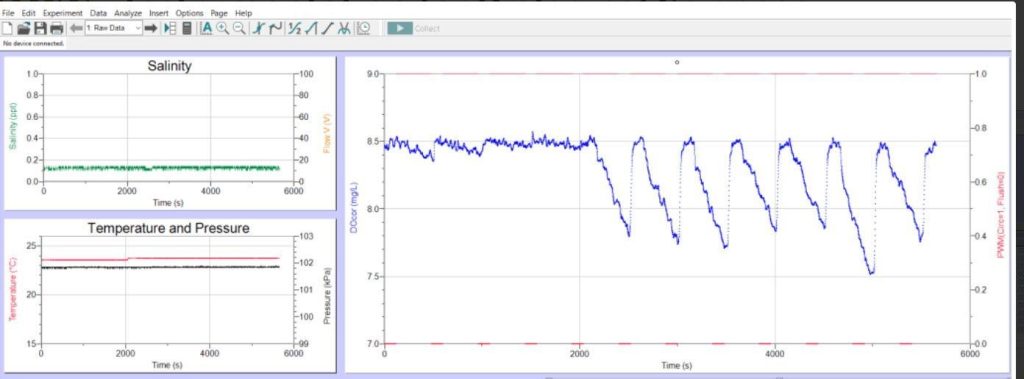
Mini-AQUA for small samples
For aquatic respirometry measurements of small fish and insect larvae (~1g) Qubit offers the Mini-AQUA package, a modified version of the Q-Box AQUA with small aquatic respirometer chamber (9mL) and components for smaller total volume system. The mini-AQUA package also features a micro-chamber (1.23mL in volume) with DO probe inserted in the top portion for measurements of VO2 of very small samples such as larvae and juvenile fish less than 0.5g. The micro-chamber is used in the intermittent stop flow mode resulting in higher sensitivity and resolution of the system.
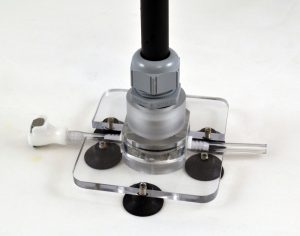
Sample Publications
- Rahi L et al. (2020) Impact of salinity changes on growth, oxygen consumption and expression pattern of selected candidate genes in the orange mud crab (Scylla Olivacea). Aquaculture Research 51: 4290-4301 https://doi.org/10.1111/are.14772
- Lucey NM, Collins M, Collin R (2020) Oxygen-mediated plasticity confers hypoxia tolerance in a corallivorous polychaete. Ecology and Evolution 10: 1145-1157 https://doi.org/10.1002/ece3.5929
OX1LP Dissolved Oxygen Package
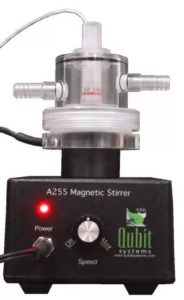
The OX1LP Dissolved Oxygen Packages incorporate a polarographic dissolved oxygen electrode to measure photosynthesis and/or respiration in the aqueous phase, using suspensions of plant cells, animals, organelles (chloroplasts and mitochondria), invertebrates or algae. These packages may also be used to monitor chemical and biochemical reactions that either produce or consume O2 in the aqueous phase. Interchangeable water-jacketed cuvettes with volumes of 1.0, 2.5, 4.0, 6.0, 30 and 50 mL may be supplied with the system. Each uses the same O2 electrode base and stirrer. Learn MORE
Sample Publications
- Koblizek M et al (2020) Utilization of Light energy in phototropic Gemmatimonadetes. Journal of Photochemistry and Photobiology B 213: 112085 https://doi.org/10.1016/j.jphotobiol.2020.112085
- Nair P, Huertas M, Nowlin WH (2020) Metabolic responses to long-term food deprivation in subterranean and surface amphipods. Subterranean Biology 33: 1-15 https://digital.library.txstate.edu/handle/10877/9805
Click HERE to learn about all of Qubit’s Aquatic Biology and Aquatic Control System
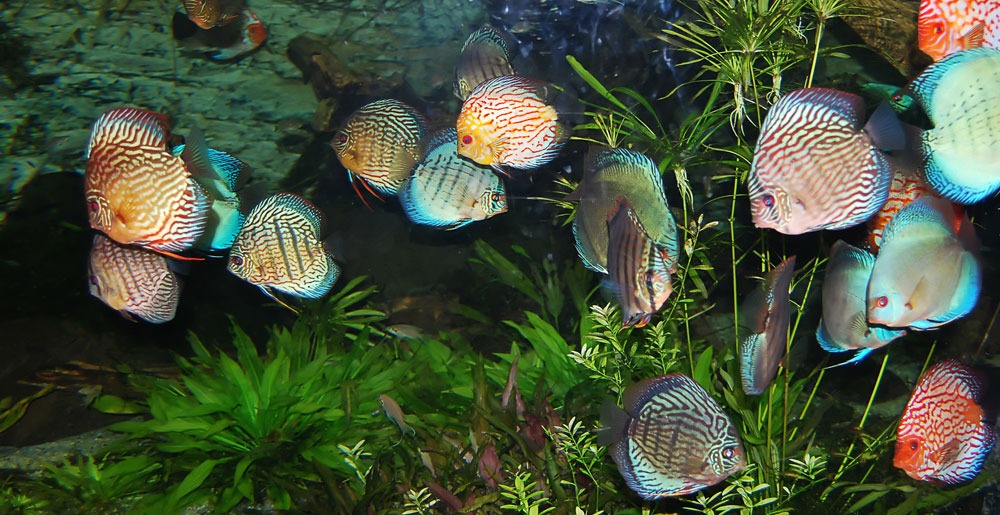
We have been using the Q-Box AQUA respirometry package for a year and have been impressed with the quality and versatility of the system. The mechanical systems are well designed and easily serviced and the software is intuitive and flexible enough for use in diverse applications. The technicians at Qubit are outstanding; they were able to modify the system to suit our particular needs and they have always been quick to respond when technical support was required. The fact that Qubit ships the system in a protective case was also a big plus for field workDr. Tyson MacCormackBiology Department, Mount Alison University, NB, Canada
